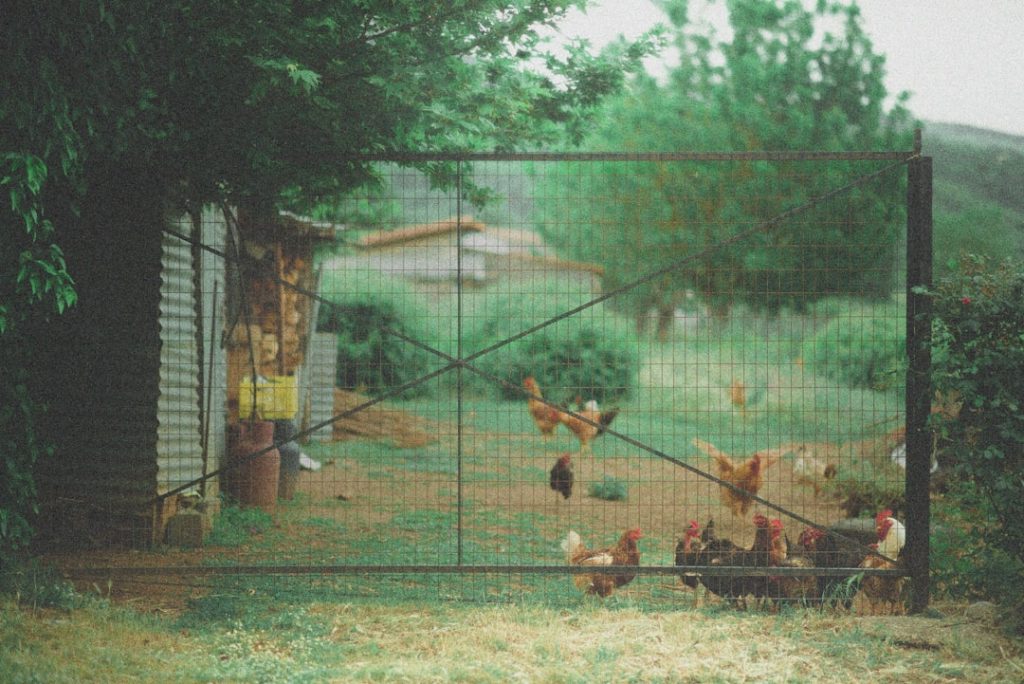In order to effectively address aggression in a flock of birds, it is crucial to first understand the root of the problem. Aggression in birds can stem from a variety of factors, including overcrowding, lack of resources, introduction of new birds, and individual personality traits. It is important to observe the behavior of the birds and identify any triggers for aggression.
This may include competition for food and water, nesting sites, or perches, as well as territorial disputes. Additionally, stress factors such as loud noises, sudden movements, or changes in the environment can also contribute to aggressive behavior in birds. By understanding the underlying causes of aggression, bird owners can take proactive steps to address the issue and create a harmonious living environment for their feathered friends.
Another important aspect of understanding the root of the problem is recognizing the natural behavior of the specific bird species. Different species of birds have unique social structures and communication methods, which can influence their behavior within a flock. For example, some species may be more territorial and aggressive, while others may be more social and cooperative.
Understanding the natural behavior of the birds in question can help bird owners better anticipate and manage potential aggression within the flock. By taking the time to learn about the specific needs and behaviors of their birds, owners can create a more suitable and comfortable living environment, reducing the likelihood of aggressive behavior.
Table of Contents
Key Takeaways
- Understanding the root of the problem is crucial for addressing aggression in birds
- Providing adequate space and resources can help reduce competition and aggression among birds
- Introducing new birds properly can minimize territorial disputes and aggression
- Identifying and removing aggressive individuals is necessary to maintain a peaceful bird environment
- Implementing distractions and enrichment can help redirect aggressive behavior and provide mental stimulation for birds
- Monitoring and addressing stress factors is important for preventing and managing aggression in birds
- Seeking professional help if necessary can provide expert guidance in resolving bird aggression issues
Providing Adequate Space and Resources
Preventing Overcrowding and Competition
One of the most critical factors in preventing aggression in a flock of birds is providing adequate space and resources for all individuals. Overcrowding can lead to competition for resources such as food, water, perches, and nesting sites, which can in turn result in aggressive behavior. It is essential to ensure that the enclosure or living space for the birds is large enough to accommodate the entire flock comfortably.
Minimizing Competition and Territorial Disputes
This may involve providing multiple feeding and watering stations, as well as plenty of perches and nesting areas to minimize competition and territorial disputes. Additionally, creating separate areas within the enclosure can allow birds to have their own space and reduce the likelihood of conflict.
Maintaining a Peaceful Flock through Resource Provision
In addition to space, providing adequate resources such as food, water, and enrichment activities is crucial for maintaining a peaceful flock. Ensuring that there is an ample supply of fresh food and water at all times can help minimize competition and reduce stress within the flock. Furthermore, introducing enrichment activities such as toys, puzzles, and foraging opportunities can help keep the birds mentally stimulated and engaged, reducing boredom and potential aggression. By prioritizing the provision of space and resources, bird owners can create a more harmonious living environment for their flock and minimize the likelihood of aggressive behavior.
Introducing New Birds Properly

Introducing new birds into an existing flock can be a delicate process that requires careful consideration and planning. Improper introductions can lead to aggression and conflict within the flock, as established individuals may view newcomers as intruders and become territorial. To prevent this, it is important to introduce new birds gradually and in a controlled manner.
This may involve initially housing new birds in a separate enclosure within sight of the existing flock, allowing them to become familiar with each other’s presence without direct contact. Over time, supervised interactions can be introduced to allow the birds to become acquainted in a safe and controlled environment. It is also important to consider the dynamics of the existing flock when introducing new birds.
For example, if there is already a dominant individual within the flock, introducing a new bird with a similar personality may lead to conflict. In such cases, it may be beneficial to introduce a bird with a more submissive personality to minimize potential aggression. Additionally, providing plenty of space and resources during the introduction process can help reduce competition and minimize stress within the flock.
By taking a gradual and thoughtful approach to introducing new birds, bird owners can help minimize the likelihood of aggression and create a smooth transition for all individuals involved.
Identifying and Removing Aggressive Individuals
In some cases, aggression within a flock may be driven by specific individuals with dominant or territorial personalities. Identifying these aggressive individuals is crucial for maintaining peace within the flock and preventing conflict. This may involve closely observing the behavior of each bird and noting any signs of aggression or dominance, such as chasing, pecking, or vocalizations.
Once aggressive individuals have been identified, it may be necessary to remove them from the flock to prevent further conflict. This can involve housing aggressive individuals separately or finding them a new home where they can thrive without causing harm to others. It is important to note that removing aggressive individuals from a flock should be done with care and consideration for their well-being.
In some cases, aggression may be driven by stress or discomfort within the living environment, rather than inherent personality traits. Before making any decisions about removing birds from the flock, it is important to assess the overall living conditions and address any potential stress factors that may be contributing to aggressive behavior. By taking a thoughtful and compassionate approach to identifying and removing aggressive individuals, bird owners can help create a more peaceful and harmonious living environment for their flock.
Implementing Distractions and Enrichment
One effective strategy for managing aggression within a flock of birds is to implement distractions and enrichment activities that can help keep the birds mentally stimulated and engaged. Boredom and lack of mental stimulation can contribute to aggressive behavior in birds, as they may become restless and seek out ways to release pent-up energy. Providing a variety of toys, puzzles, foraging opportunities, and other enrichment activities can help keep the birds occupied and reduce the likelihood of conflict within the flock.
This can include hanging toys, mirrors, perches of different heights, and natural materials such as branches or leaves for pecking and exploring. In addition to physical enrichment activities, providing mental stimulation through training exercises or interactive games can also help reduce aggression within a flock. Training birds to perform simple tasks or tricks not only provides mental stimulation but also strengthens the bond between birds and their owners.
This can help reduce stress and anxiety within the flock, leading to a more peaceful living environment. By implementing distractions and enrichment activities, bird owners can help minimize boredom and restlessness within their flock, reducing the likelihood of aggressive behavior.
Monitoring and Addressing Stress Factors

Common Stress Factors
Common stress factors include loud noises, sudden movements, changes in routine or environment, inadequate space or resources, and disruptions in social dynamics.
Creating a Comfortable Environment
By closely monitoring bird behavior and noting signs of stress or discomfort, owners can take proactive steps to address these factors and create a comfortable living environment. One effective way to address stress is to establish a consistent and predictable routine, providing regular feeding times, maintaining a stable environment, and ensuring access to adequate resources.
Minimizing Stress and Anxiety
Minimizing loud noises and sudden movements around the living space can reduce stress and anxiety within the flock. Providing a calm and peaceful environment with opportunities for rest and relaxation can help minimize stress factors that contribute to aggression. By monitoring for signs of stress and taking proactive steps, owners can create a tranquil living environment for their birds.
Seeking Professional Help if Necessary
In some cases, managing aggression within a flock of birds may require professional assistance from an avian behavior specialist or veterinarian. If aggressive behavior persists despite efforts to address underlying causes and implement management strategies, seeking professional help may be necessary to identify and address any underlying health or behavioral issues that may be contributing to aggression. A qualified professional can conduct a thorough assessment of the living environment and behavior of the birds to identify potential triggers for aggression and develop a tailored management plan.
Additionally, seeking professional help can provide valuable guidance on training techniques, environmental modifications, or behavioral interventions that may help reduce aggression within the flock. A professional with expertise in avian behavior can offer insights into the specific needs and behaviors of the bird species in question, as well as provide support for bird owners in implementing effective management strategies. By seeking professional help when necessary, bird owners can gain valuable knowledge and support in managing aggression within their flock and creating a peaceful living environment for all individuals involved.
In conclusion, addressing aggression within a flock of birds requires a comprehensive understanding of the root causes of the problem, as well as proactive management strategies to create a harmonious living environment for all individuals involved. By providing adequate space and resources, introducing new birds properly, identifying and removing aggressive individuals when necessary, implementing distractions and enrichment activities, monitoring and addressing stress factors, and seeking professional help if necessary, bird owners can effectively manage aggression within their flock and promote peace and harmony among their feathered friends. With careful observation, thoughtful planning, and proactive management strategies, bird owners can create a safe and comfortable living environment that minimizes conflict and supports the well-being of their flock.
If you’re struggling with keeping your chickens from fighting, you may want to check out this article on chicken coop designs in Chester, SC. A well-designed coop can provide enough space and resources for your chickens to reduce aggression and fighting.
FAQs
What are the common reasons for chickens to fight?
Chickens may fight due to overcrowding, lack of space, introduction of new birds to the flock, or establishing a pecking order within the group.
How can I prevent chickens from fighting?
To prevent chickens from fighting, provide adequate space for the flock, ensure there are enough resources such as food and water, and introduce new birds gradually to the existing flock.
What are some signs of aggression in chickens?
Signs of aggression in chickens include pecking, chasing, and loud vocalizations. Aggressive chickens may also puff up their feathers and engage in physical fights.
Are there specific breeds of chickens that are more prone to fighting?
Some breeds of chickens, such as game birds, are known for their aggressive behavior and may be more prone to fighting. However, individual temperament and environmental factors also play a significant role in chicken behavior.
Can providing enrichment for chickens help reduce fighting?
Yes, providing enrichment such as perches, dust baths, and toys can help reduce boredom and stress in chickens, which in turn may reduce the likelihood of fighting within the flock.
Meet Walter, the feathered-friend fanatic of Florida! Nestled in the sunshine state, Walter struts through life with his feathered companions, clucking his way to happiness. With a coop that’s fancier than a five-star hotel, he’s the Don Juan of the chicken world. When he’s not teaching his hens to do the cha-cha, you’ll find him in a heated debate with his prized rooster, Sir Clucks-a-Lot. Walter’s poultry passion is no yolk; he’s the sunny-side-up guy you never knew you needed in your flock of friends!







